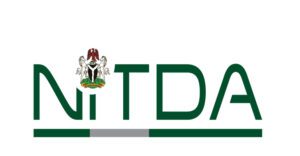
Making energy-efficient, eco-friendly and smoother garment care possible with LG’s latest washing machines
It’s not surprising that so many individuals view laundry as a chore. After all, the majority of us wash our clothes at least once a week, and those who have large families or young children are probably washing more frequently—some perhaps every day. The washing won’t do itself, that is why getting an energy-efficient and garment protection washing machine is a necessity.
The global laundry care products market size was valued at USD 71283.29 million in 2021 and is expected to expand at a CAGR of 4.29 per cent during the forecast period, reaching USD 91701.24 million by 2027, according to 360 Market Update report.
It’s a great time to upgrade to an eco-friendly, easer and smoother garment care washing machines.
LG recently launched some of the best washing machines, and they’re all on sale now. The top-rated laundry appliances come with the best features today, including AI technology, Wi-Fi connectivity, antimicrobial capabilities, super speed, a bevy of wash cycle options and more.
Compared to a conventional wash cycle, LG washing machines’ Artificial Intelligence Direct Drive (AI DD) technology offers 18 per cent more fabric protection for your clothing.
It’s a remarkable outcome made achievable by AI’s capacity to recognize how delicate the materials being washed are. Because AI DD automatically recognizes which items to treat delicately and adapts the wash/rinse/spin technique accordingly, you don’t need to manually change the wash programme.
“It’s fair to state that washing machines have advanced significantly. Compared to earlier models, they are now far more energy and water efficient. No matter how much or how little laundry was in the drum, earlier types of washing machines utilized the same amount of water, energy, and time to clean it. Three kilogrammes of denim or one kilogramme of lingerie would both receive the same wash procedure. Modern washing machines can adjust each cycle to the kind of cloth and weight of your laundry thanks to new technology”, said Mr. Brian Kang, General Manager, Home Appliances Division, LG Electronics West Africa.
“LG washing machines boast a range of high-performance functions from reducing allergens to care programmes designed to help extend the life of your clothing. An LG washing machine will make your life smoother and easier. Our recent washing machines can save you time, energy and water. Our intelligent laundry technologies will help make wash day more of a pleasure than a chore.
“LG technology takes advantage of in-machine intelligence and knows exactly how to handle your clothing with care. Before starting to add water, the washing machine weighs the load of laundry. As clothing is introduced into the drum, sensors begin to operate and compare the textures of the clothing to pre-programmed data gleaned from the analysis of more than 20,000 various fabric types. This allows for a high level of clothing detection accuracy, which allows the washing machine to automatically select which programme to run. Cotton, mixed fabric, and easy care are common options”, he added.
LG’s AI technology brings no privacy concerns because its washing machines neither extract nor rely on users personal information. It’s 6 Motion Direct Drive technology is based on the six key actions we use when doing the washing by hand: tumble, swing, filtration, rolling, scrub and stepping.
With reference to these six primitive motions — plus analysis of the textile composition of the clothing you are washing — AI DD individually selects the optimal washing pattern for each load of laundry.
The revolutionary Direct Drive motor from LG, which offers unmatched performance without losing efficiency, has undergone over 20 years of innovations. The “AI DD washer” builds on those developments. In addition to detecting the volume and weight of each individual load of laundry, LG’s new washing machine also employs AI and sophisticated sensors to determine the types of fabrics in each load. The washer then programmes the ideal wash cycle setting for the best outcomes by comparing this data to more than 20 thousand usage-related data points using deep learning technology, boosting cleaning performance and 15 per cennt prolonging the life of clothing.
A key consideration for consumers when buying a washing machine is the size of the machine. Running a washing machine with a large drum but with a load that is much smaller than its capacity will waste electricity, so consumers should select a washing machine size that is appropriate to their household size. Washing machines with a smaller drum are best suited to households that do regular, small washes. Washing machines with a larger drum are best suited to households that need to wash large loads at one time.
Energy Savings Tips for LG Washing Machines:
Washing machines that are used regularly can be significant users of both energy and water in households. Purchasing a more efficient washing machine will save electricity and water for years to come.
Buy a washing machine, which offers a variety of water temperature settings.
— LG front-loading washing machine uses less water and costs less to operate even though the purchase price may be higher than a top loader.
— Use warm and cold water setting as much as possible in order to cut down on energy needed to heat the water.
— Take advantage of special features on your LG washer that can save money. For example, soak cycles remove stubborn stains in one wash cycle.
— The LG automatic washing machine uses the same amount of electricity for a full load as it consumes for a single item. Save dirty clothes until a full load has accumulated.
— Never overload your LG automatic washing machine. Overloading will reduce the cleaning action. (Varying the size of garments in a full load improves the cleaning action by allowing free circulation).
You can read more about LG washing machines to buy this season via https://www.lg.com/africa/washing-machines



